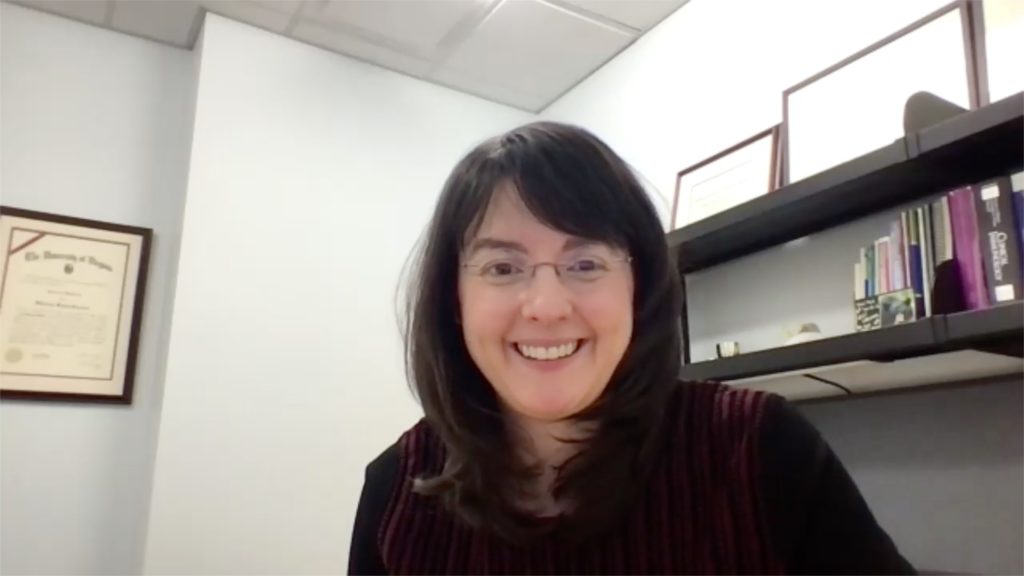touchRESPIRATORY were delighted to speak with Dr Isaac Schmale (University of Rochester Medical Center, Rochester, NY, USA) around the signs and symptoms of aspirin-exacerbated respiratory disease (AERD), the incidence of AERD in people with asthma, the current treatment paradigm for AERD and the unmet needs in its treatment.
The abstract ‘Real-world Outcomes of Dupilumab Therapy for Nasal Polyposis in Patients with Aspirin-Exacerbated Respiratory Disease‘ (Abstract number: 672) was presented at AAAAI 2023, February 24–27, 2022, #AAAAI2023.
Questions
- Could you tell us a bit about the signs and symptoms of aspirin-exacerbated respiratory disease (AERD)? (0:34)
- What is known about the incidence and risk of AERD in people with asthma? (2:05)
- Could you give us a brief overview of the treatment paradigm for AERD and the unmet needs in its treatment? (2:33)
Disclosures: Isaac Schmale has nothing to disclose in relation to this video interview.
Support: Interview and filming supported by Touch Medical Media Ltd. Interview conducted by Atiya Henry.
Filmed in coverage of the American Academy of Allergy Asthma & Immunology Annual Meeting 2023.
Transcript:
My name is Dr Isaac Schmale. I’m rhinologist and skull-based surgeon at the University of Rochester Medical Center in Rochester, New York. And I have a practice that is very geared towards seeing patients with nasal polyps and allergies. And I see a lot of patients with aspirin exacerbated respiratory disease, which was the motivation of the project that we’re going to be talking about.
Could you tell us a bit about the signs and symptoms of aspirin-exacerbated respiratory disease (AERD)? (0:34)
For AERD or aspirin exacerbated respiratory disease it’s defined by the presence of nasal polyps, asthma and then a sensitivity to aspirin and non-steroidal anti-inflammatory drugs, ibuprofen and other Cox inhibitors. It’s also a spectrum of diseases. So patients can present with slight, very mild forms of all of those to very severe symptomatic forms. Especially on the polyps side, I think that’s true. What I normally see, at least from my practice, is patients that are coming in with loss of smell, nasal congestion, lack of airflow through their nose because of such bad nasal polyps. Then as I speak with them, you discover that they also have had asthma for a long time that’s either gotten worse or maybe they’ve been newly diagnosed with asthma. Then they’re also having reactions of more severe symptoms like wheezing, cough, asthma type symptoms or nasal congestion, runny nose when they take aspirin or ibuprofen. One thing I also ask them, which is sort of an overlap of symptoms, is that they can have those same reactions to alcohol is a very common reaction. So, red wine, beer, classically patients will have very similar symptoms as if they were taking aspirin.
What is known about the incidence and risk of AERD in people with asthma? (2:05)
I think a lot has been published on the incidence of AERD in patients with asthma as it’s become more and more well-known over the decade. Probably at least in most reports, somewhere around 10% of adult patients with asthma and maybe around a third of patients with asthma and nasal polyps have AERD.
Could you give us a brief overview of the treatment paradigm for AERD and the unmet needs in its treatment? (2:33)
In terms of the treatment paradigm, they’re sort of adjacent treatments for nasal polyps and asthma, both of which all patients with AERD would have. So, from my perspective on nasal polyps, if I’m seeing a new patient who I think has AERD and hasn’t really been treated frequently, they’ll benefit quite a bit from a short burst and taper of oral steroids. So something like prednisone to try to really shrink the nasal polyps quickly. Then as you’re doing that and continuing on, we’re treating them with an appropriate topical nasal steroid. So we have several medications approved for nasal polyp use. Things like mometasone or XHANCE, which is a new delivery mechanism for fluticasone. Then for a long time and continuing, people have used off label use of steroid irrigation. So things like budesonide and other medicines that you can rinse in the nose. And then I think it’s important to try to optimize the adjacent conditions that can go with this. So, a lot of these patients have coexisting allergy. So trying to, if that’s true, get them treated for their allergens, you know, get them onto an oral medication, could be onto an allergy spray, potentially allergy testing. And then also there’s the asthma side. So patients with poorly controlled asthma tend to do worse with their polyps and vice versa. So as I’m treating nasal polyps I’m frequently working with allergy immunology, trying to get their asthma side managed well too at the same time. That’s sort of the first step, but I think it’s part of that paradigm. Patients who fail that then move on to more aggressive treatments for polyps. That tends to be either endoscopic sinus surgery or talking about newer biologic medicines or clinical trials.
Subtitles and transcript are autogenerated





